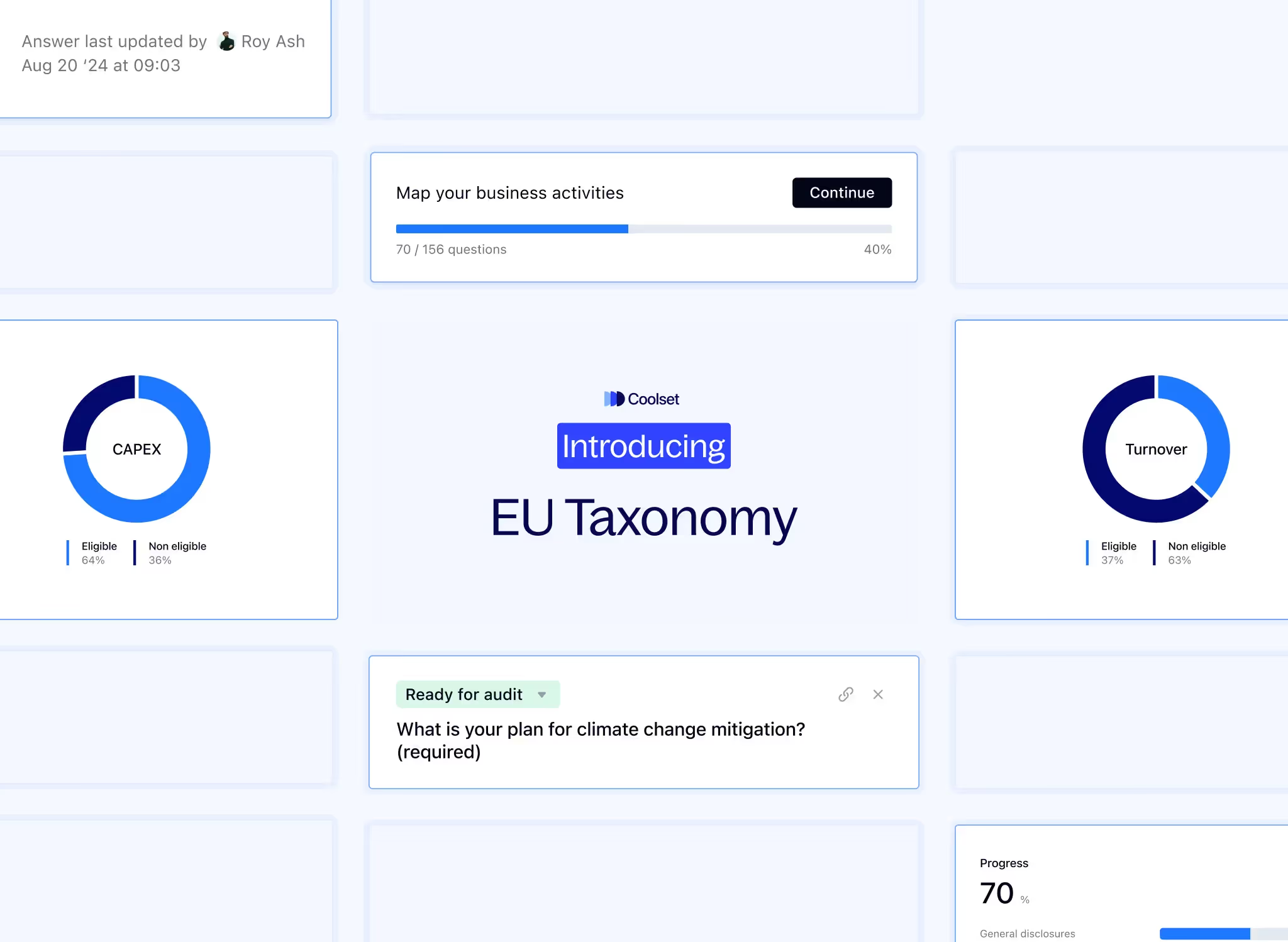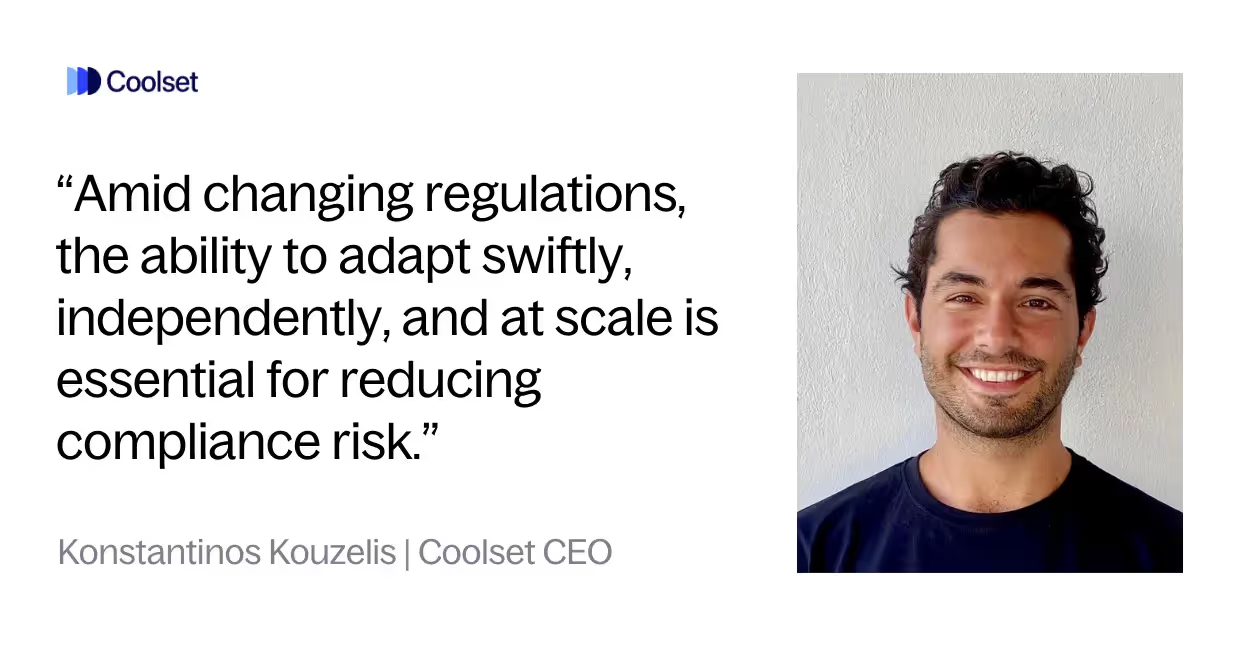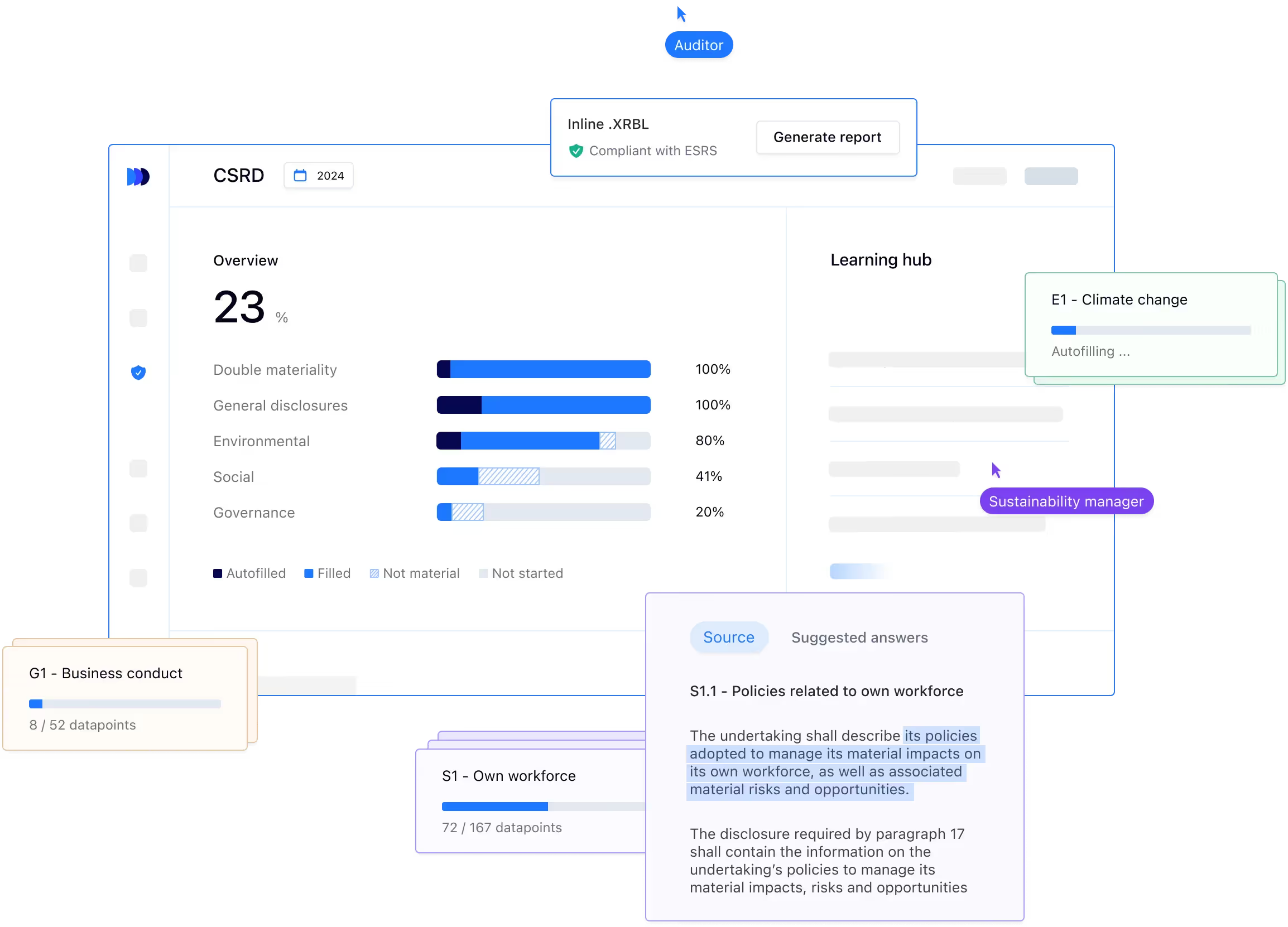
Disclaimer - EUDR updates as of 23rd September 2025
On July 9, the European Parliament rejected the EUDR country risk benchmarking system. More recently on September 23, the European Commission also proposed delaying the regulation’s implementation. We are monitoring these developments and will update content as needed. For the most up-to-date information, refer to this deep-dive article.
Disclaimer: Recent EUDR developments
On 23 September 2025, the European Commission proposed delaying the EU Deforestation Regulation (EUDR). We are monitoring the situation and will update our content as needed. For the most up-to-date information, refer to this deep-dive article.
Amsterdam, 18 February, 2025
Coolset, a Dutch market leader in sustainability management software, has launched its EU Taxonomy framework, a solution designed to help mid-market companies comply with evolving regulations like the Corporate Sustainability Reporting Directive (CSRD) and EU Taxonomy.
The EU Taxonomy defines which business activities qualify as environmentally sustainable and plays a central role in CSRD, requiring companies to report how much of their revenue, CapEx, and OpEx align with sustainability objectives.
While large corporations have dedicated compliance teams and substantial resources, mid-market companies face unique hurdles, including limited sustainability expertise, constrained budgets, and reliance on fragmented tools. As regulations evolve, compliance becomes increasingly complex.
Coolset’s EU Taxonomy framework provides companies with a structured, guided approach to sustainability compliance. Built for adaptability, the platform ensures companies remain aligned with evolving regulations—without adding unnecessary complexity.
With Coolset, companies can manage both CSRD and EU Taxonomy compliance in one place, ensuring data consistency, centralized documentation, and cross-team collaboration within a single platform.
With Coolset, companies can:
The sustainability world is now awaiting the introduction of the EU Omnibus, a regulatory package aimed at increasing transparency and simplifying reporting.
Expected on February 26, 2025, these updates will significantly impact compliance frameworks like the EU Taxonomy, bringing changes to materiality thresholds, reporting obligations, and assurance standards.
While designed to streamline compliance, the European Commission’s move signals a broader reality—regulations will continue to evolve. For companies already stretched thin by limited resources and expertise, this growing uncertainty creates an added burden.
“Many companies still rely on spreadsheets or external consultants for sustainability reporting, but with regulations constantly evolving, this approach is quickly becoming obsolete. The ability to adapt swiftly, independently, and at scale is now essential to reducing compliance risk,” said Konstantinos Kouzelis, CEO of Coolset.

According to Konstantinos, Coolset is uniquely positioned to keep customers compliant thanks to its built-to-adapt architecture, which enables rapid responses to regulatory updates.
“With Coolset, companies are guided through compliance and updated whenever regulations change. This eliminates the need to track new rules manually or rely on costly consultants,” he added.
As sustainability regulations tighten, businesses must embrace scalable, automated solutions to stay compliant and reduce risk. Coolset’s EU Taxonomy framework helps companies stay ahead of regulatory changes and confidently manage sustainability reporting.
Are you interested in Coolset's EU Taxonomy framework? Schedule a call with us.
Stay ahead of evolving regulations and get audit-ready.
